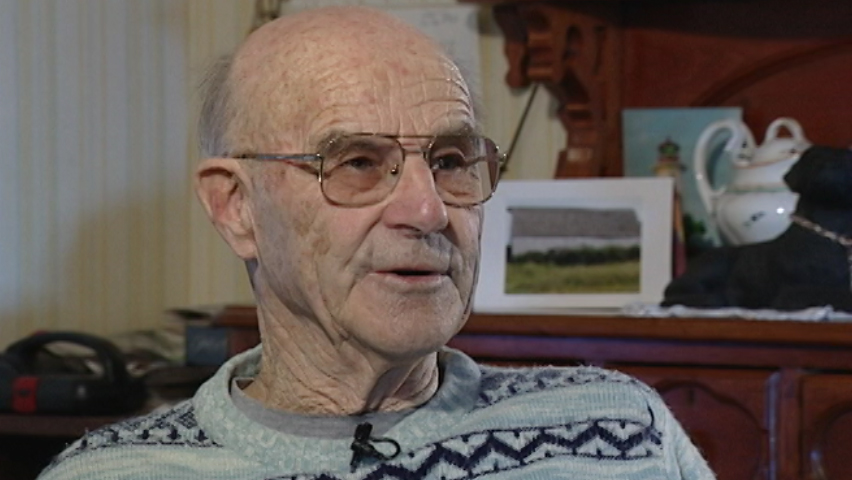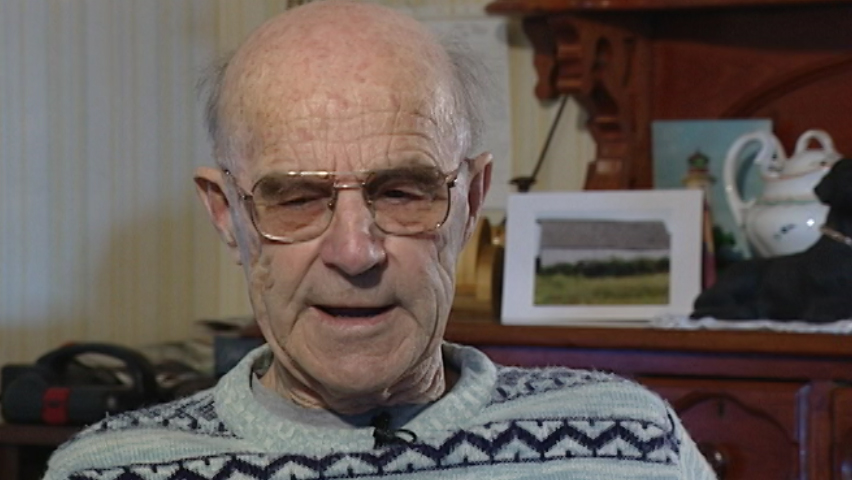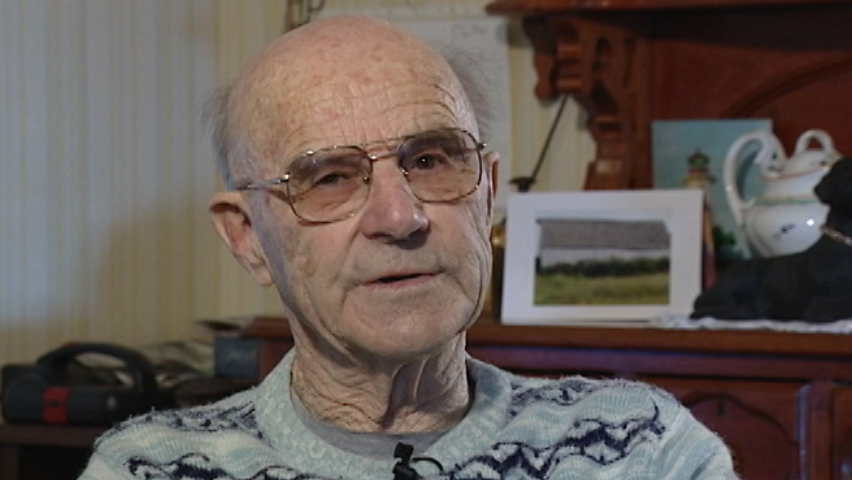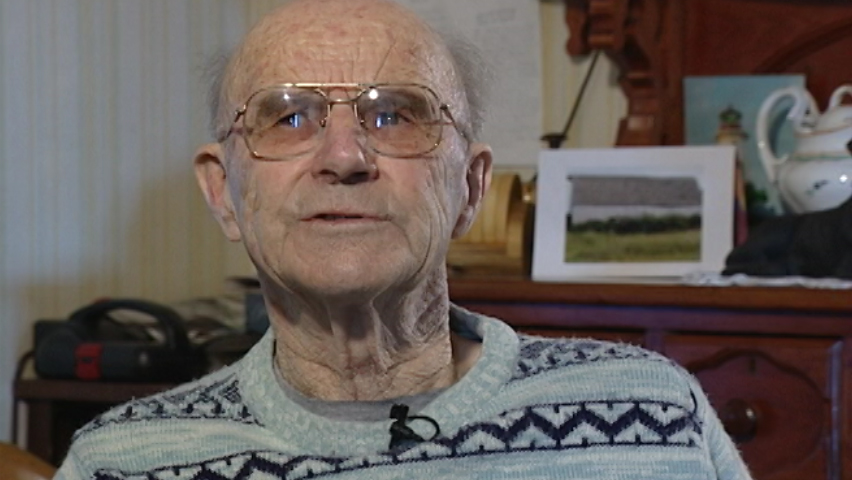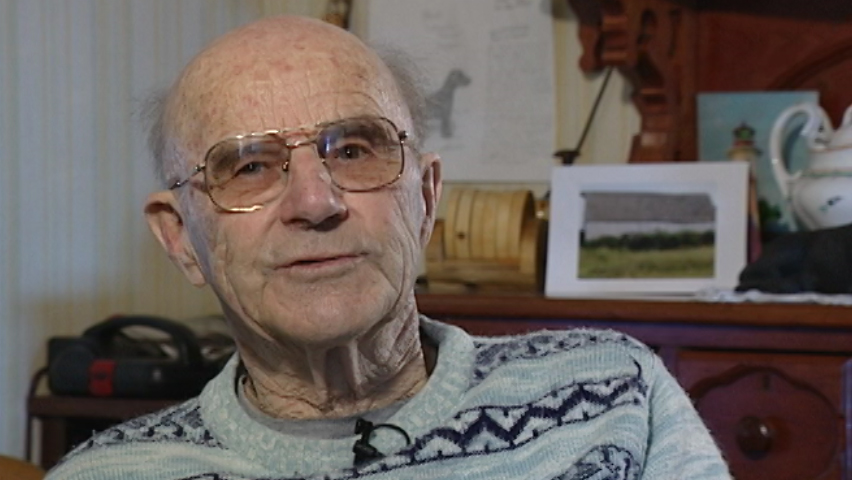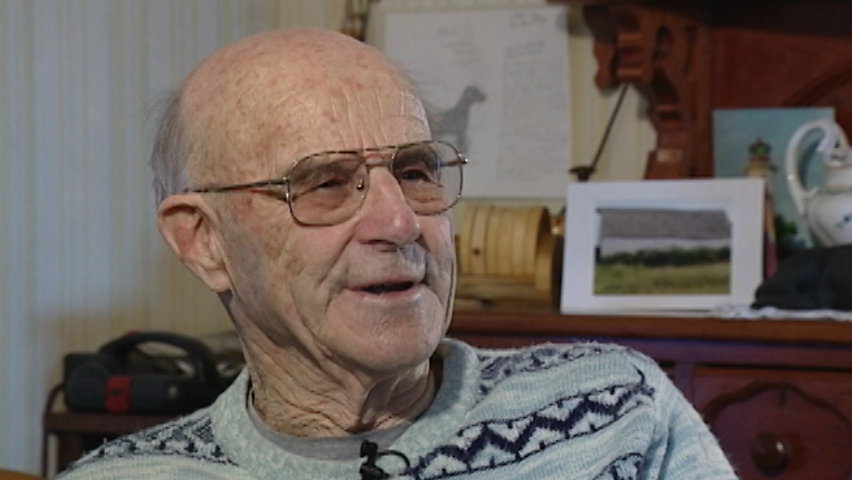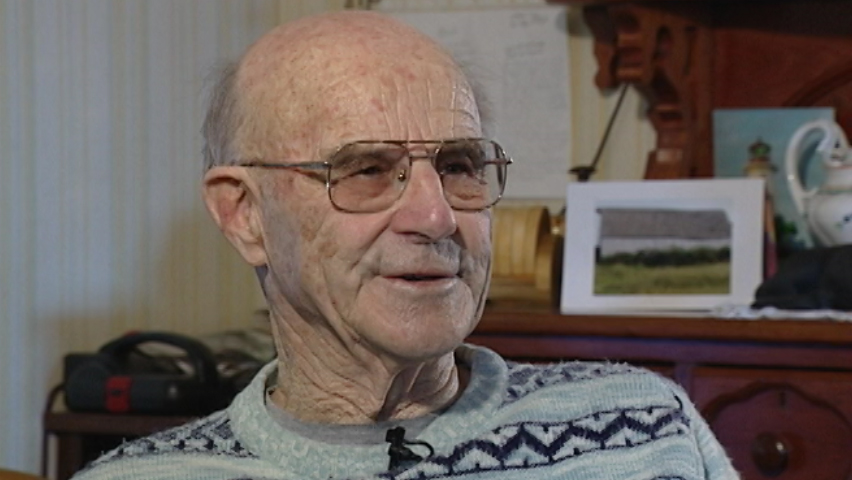You Had to Prove You’re one of Them.
Heroes Remember
You Had to Prove You’re one of Them.
Transcript
Description
Mr. Clark describes integrating into an established crew on the ‘Lady Nelson’, and describes the informality among the officers and crew.
Charles Howard Clark
Charles Howard Clark was born in Chelton, Prince Edward Island on November 16, 1924. His father worked as a fisherman, carpenter and butcher during the Depression. Mr. Clark indicates that although times were tough, his community shared its resources and no one went hungry. He attended a one room school. Although he was able to enlist, he, like many local youth, had to stay on the farm as the production of food was vital to the war effort. Mr. Clark’s attempts to enlist in 1943 were at first unsuccessful; he was turned down by both the navy and air force, but was finally accepted into the infantry. However, his stay there was short due to a childhood hip injury, which made marching difficult. He then trained as a stretcher bearer, before finally joining the hospital ship ‘Lady Nelson’ as a nurse-orderly. Aboard this vessel, Mr. Clark made seventeen transatlantic voyages, offering medical care of various types to the wounded who were being returned to Canada. He witnessed the Halifax riots and feels much of the blame placed on the military was unwarranted.
Meta Data
- Medium:
- Video
- Owner:
- Veterans Affairs Canada
- Duration:
- 1:49
- Person Interviewed:
- Charles Howard Clark
- War, Conflict or Mission:
- Second World War
- Location/Theatre:
- North Atlantic Ocean
- Branch:
- Army
- Units/Ship:
- Royal Canadian Army Service Corps
- Rank:
- Corporal
- Occupation:
- Nurse-Orderly
Related Videos
- Date modified:



